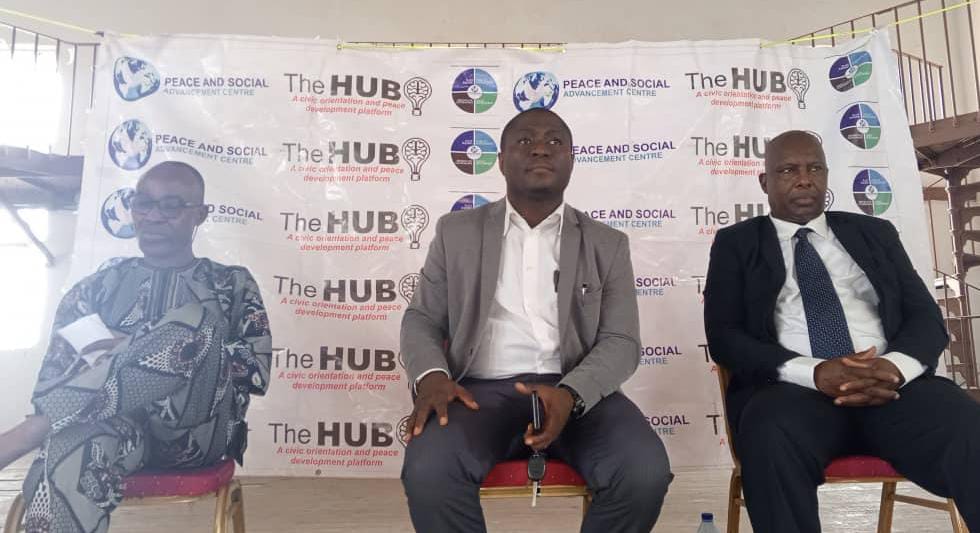Experts at the Peace and Social Advancement Centre (PESAC) colloquium have called for urgent constitutional reforms and a shift in leadership attitudes to address Nigeria’s democratic and federalism challenges.
The event, which took place in Abeokuta, brought together stakeholders to analyze the nation’s governance system and proffer solutions for its advancement.
Themed around Nigeria’s democratic structure and federalism, the colloquium urged a revisitation of the 1999 Constitution, with a particular focus on addressing the enduring tension between federal and unitary elements within the nation’s governance framework.
Speaking through his Senior Legislative Aide, Adeola Sanni, the Federal House of Representatives member, Hon. Afolabi Moruf Afuape, advocated for the establishment of a community police corps and a state-specific development agenda.
He highlighted the need for constitutional review, underscoring the complexity of Nigeria’s federalism and the persistent unitary tendencies embedded in the current system.
“As a nation, we need to embrace constitutional reforms that reflect the uniqueness of each state’s developmental pace.
The federal system should allow flexibility for states to advance according to their capacities while maintaining the necessary cohesion as a nation,” Sanni stated on behalf of Afuape.
The Chairman of the colloquium, Gbenga Gbesan, echoed these sentiments, stressing that Nigeria’s political class must undergo a transformation in their approach to governance.
He called for a comprehensive restructuring of the system and a change in the attitude of politicians toward the nation’s development.
“We cannot continue with business as usual. For Nigeria to thrive, constitutional reform is paramount, and our leaders must embrace the change needed for genuine progress,” Gbesan said.
In his welcome address, Femi Adeleye, the Executive Director of PESAC, outlined the objectives of the colloquium.
He emphasized the importance of fostering inclusive dialogue that not only identifies the challenges of Nigeria’s quasi-federalism but also provides actionable recommendations to guide policy decisions.
The panel discussion featured legal expert Barrister Patrick Iwu, academic Dr. Bola Babalola, and journalist Rasaq Ayinla, who delved into the roots of Nigeria’s governance challenges.
They pointed to the mismanagement of power, lack of meaningful citizen engagement, and selective adherence to constitutional provisions as major hindrances to effective federalism.
“The constitution should be a living document that guides the nation’s progress, but in Nigeria, it is selectively applied, contributing to governance failures. We need reforms that ensure it is followed with integrity,” Iwu argued.
The panelists also provided insights into the evolution of Nigeria’s federalism, noting that the current system leans heavily on unitary principles, which hampers states’ ability to govern effectively.
They argued that genuine federalism would empower states to take charge of their development while fostering national unity.
Participants at the colloquium examined the implications of the unitary system on Nigeria’s governance and explored the challenges of implementing meaningful reform.
The event concluded with a consensus that constitutional reform, along with a change in leadership attitudes, is crucial to strengthening Nigeria’s federalism and enhancing democratic governance.
Do you want to share a story with us? Do you want to advertise with us? Do you need publicity for a product, service, or event? Contact us on WhatsApp +2348183319097 Email: platformtimes@gmail.com
We are committed to impactful investigative journalism for human interest and social justice. Your donation will help us tell more stories. Kindly donate any amount HERE




